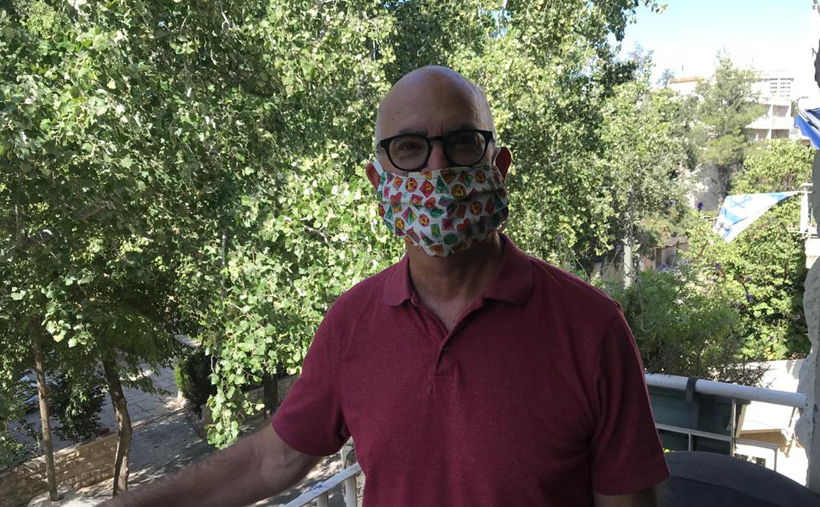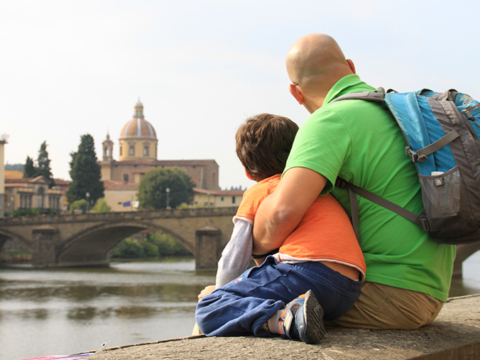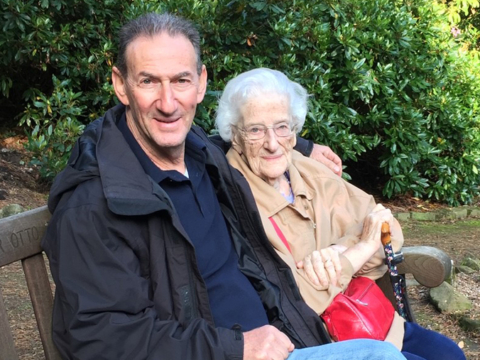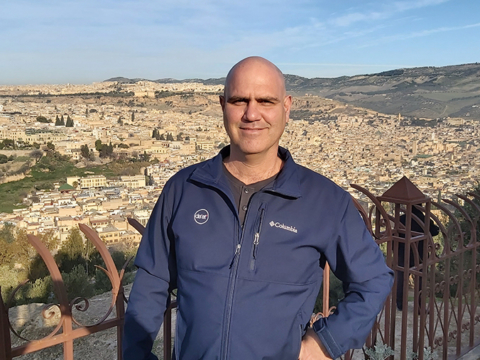We are all Jews by choice.
This Tmuna piece is the first in an uplifting series of posts that will explore how Jewish community – which has long been the cornerstone of the Jewish faith – has adapted to the reality of lockdowns, quarantines, and social distancing. We will be featuring rabbis and leaders from across the globe to examine how different communities are finding new ways to connect with each other, as well as with Judaism and Israel.
To kick off the series, we are talking to Da’at’s beloved rabbinic liaison and long-time friend, Rabbi Don Goor, who has assisted and educated us over the years in crafting travel itineraries while also offering advice and support to rabbis and families who are planning trips to Israel and other places around the Jewish world.
As a rabbinic liaison and a rabbi, you have always connected to people through trips, prayer, services. Why is the theme of connection so important in Judaism?
We Jews prefer not to do anything alone. Adam knew this when he asked God for a partner. We thrive in the setting of a community. We need a minyan (a quorum of ten adults) to pray and to celebrate. Over the centuries, our emphasis on community has given us the strength to weather challenges as well as to celebrate successes. In moments of sadness, we can garner strength by leaning on those around us. And what would it be like to celebrate joy alone? We need others to share in life’s wonderful moments. While studying alone or traveling alone can be rewarding, the Jewish way is to study (and even to travel) with others because we gain deeper insight by being exposed to different perspectives.
How have you personally managed to stay connected both to your immediate community and to the congregations around the world with whom you have a professional and spiritual relationship?
With community being such an essential component of Jewish life, Corona has forced us to re-examine how we can maintain and build our community without being able to do so in person. Cultivating a Jewish connection requires a different mindset. It requires a personal commitment. You can’t assume you’ll automatically see your loved one or friends. You can’t be passive and wait for your paths with friends and family to cross. In this unusual time, we must consciously decide to reach out, even if it requires creativity and a shift in thinking.
Rabbinical colleagues of mine have asked me over the past few months to join their communities to teach remotely. Thanks to technology, I have been able to teach classes in Florida, New York, Arizona, California, and Canada. In fact, CCAR and ARZA World/Da’at are partnering in a webinar on November 11 exploring innovative and imaginative opportunities for virtual community travel.
Not only have I been able to teach and attend online classes across the US, but I have also been blessed to join Jewish communities from all over the world in praying together on Shabbat and the Jewish holidays. There is something truly awe-inspiring about how synagogues have overcome the obstacles of distance and have come together in creative ways to pray and share in the diversity and beauty of Jewish prayer and music. This is a joy that before this time I never got to experience. Zoom has also been a great way for me to maintain my personal friendships and relationships. Evan and I were particularly overjoyed to celebrate Rosh Hashana and Yom Kippur via Zoom with our entire families for the first time in many, many years. And that was entirely thanks to technology.
As rabbi of Beth Shalom in Milan, you used to travel there once a month to celebrate Shabbat and the Jewish holidays. How do you now maintain a connection with the community?
While we no longer can physically meet in Milan, our congregation gets together weekly via Zoom for Kabbalat Shabbat services, Havdalah, and lecture courses. We have also strengthened our relationship with the other Reform congregations in Italy, sharing in learning and celebration.
We’ve done our best to use technology creatively. For the High Holy Days, Beth Shalom members were treated to a Shofar blowing outside the walls of the Old City and then we chanted Torah at the Egalitarian Kotel and played that video during our service. Recently we brought in a Challah making expert (Challah Prince) to teach a Challah baking webinar! At the end of each Friday night’s Kabbalat Shabbat, everyone holds up the Challah they baked that week.
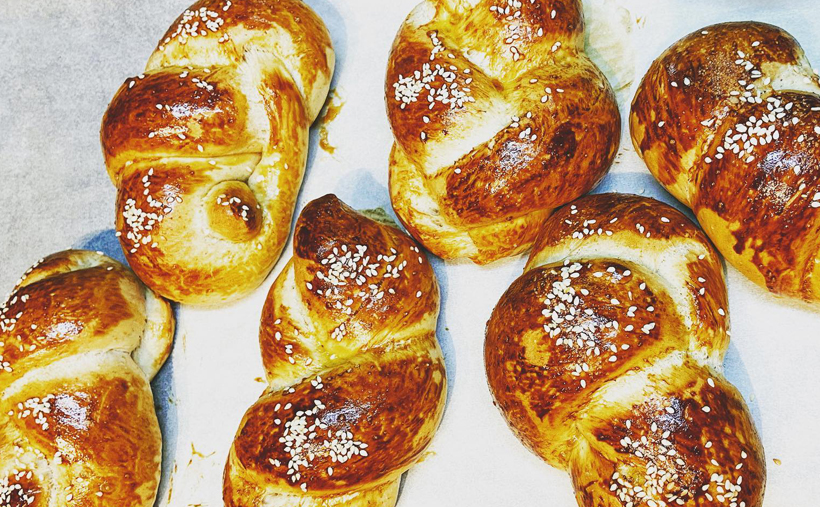
How have you remained connected to prayers/services in Jerusalem?
One of the greatest joys we have experienced this year has been sharing in public religion. On Passover, all Israelis were invited to go onto their balconies at 8:00 p.m. and sing the four questions. The ENTIRE country was singing together from their balconies that Passover evening. On Yom Ha’atzmaut/Independence Day we once again sat out on our balconies to sing Hatikvah together. It has been a lovely reminder of what we share as a Jewish community.
A large neighborhood synagogue has moved their daily Shabbat and holiday prayers to our street in Jerusalem. The Shaliach Tzibur (prayer leader) stands on the roof of our four-story building so the entire block can see and hear him lead prayers. Before our Shabbat service each week with Milan, we join in prayer with all our neighbors. It was extremely moving to hear the Shofar on Rosh Hashana, listen to Kol Nidre, and watch the Hakafot on Simchat Torah. You no longer have to leave your home to be part of a community. You just have to choose to belong.
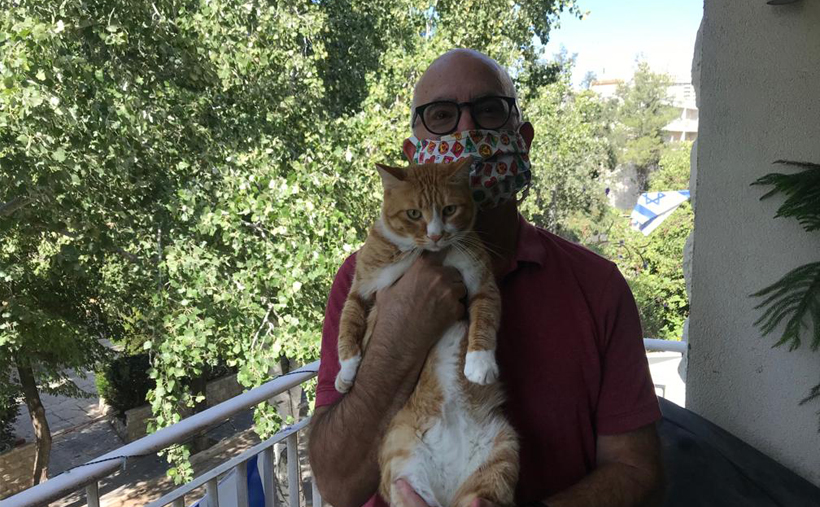
What are your personal recommendations to readers in the US on how to stay connected to Judaism and Israel – since travel (and in some cases attending services) is currently off the table?
Take advantage of technology and find novel ways to connect with each other and your community. This difficult period allows us to think differently. We can join with congregations around the world for Shabbat and Jewish holidays. Join Evan and me one Friday night in Milan! To stay connected to the latest goings-on in Israel, join a Zoom call with IRAC to learn more about societal challenges in Israel and connect virtually to communities in Israel for joint sessions. You can also participate in the World Union for Progressive Judaism worldwide Shabbat and look for a worldwide Hanukah celebration on night #4. There are always ways to keep your Jewish connection alive.
Do you see any improvements or positive changes in the way people now relate to their community and communicate with each other and Gd?
Each of us is a Jew by choice…each morning we wake up and choose how we will live a meaningful Jewish life. Currently we need to answer this question in new ways. On a personal level we must answer how our actions will affect others and bring healing and health to our world. On a communal level we must choose to connect and engage with each other. In this way we can actively bring God’s presence into our world.


